JOB POSTINGS
Metea Valley High School is looking for a part-time Tech Director, beginning in January, 2020.
University of Wisconsin-Parkside is seeking an Assistant Professor of Theatre Arts. This position will teach 24 credits annually.
Quincy Community
Theatre
seeks a dynamic
and energetic Student
Theatre Director/Head of Education.
Grant Community HS,
in Fox Lake, IL, Is
currently seeking a
choreographer for their
2020 spring musical,
Guys and Dolls.
Timber Lake Playhouse,
a
professional Equity
theatre, is seeking a
Scenic Carpenter.
Job Details, or to Submit
a Job Posting.
Harper College
announces auditions for
Shakespeare in Love. Date: Monday, December 2 and Tuesday, December 3, 2019, 7-10 pm.
Kankakee Valley Theatre Association will hold auditions for
Almost, Maine on December 5 and 6, 2019, beginning at 6p.m.
Kankakee Valley Theatre Association
announces auditions for
Mary Poppins Jr. on December 13, 2019, from 6 to 9 p.m. and December 14, 2019, from 10 to 2 p.m.
Western Illinois University is proud to announce auditions for the BFA - Musical Theatre program.
Indiana University South Bend announces entrance auditions for students who plan to begin college in the 2020-2021 academic year.
FAME, Foundation of Artistic Mentored in Entertainment (501C3), announces its auditions from January 2-February 25, 2020.
Milliken University
announces auditions for its BFA programs for 2020-2021.
Indiana University South Bend announces entrance auditions for students who plan to begin college in the 2020-2021 academic year.
Click here for ALL Audition Details, or to Submit an Audition.
|
FEATURED PERFORMANCES
Winter DanceWorks Concert
Western Illinois University Depart. of Theatre and Dance
12/5/19 - 12/8/19
Thurs. - Satu. at 7:30 pm; Sun. at 2 pm
The Twelve Dates of Christmas
Vermillion Players
12/6/19 - 12/15/19
Fri. &n Sat. at 6 pm
Sun. at 12:30 pm
Visit the
|
Join the ITA on Facebook:
|
| 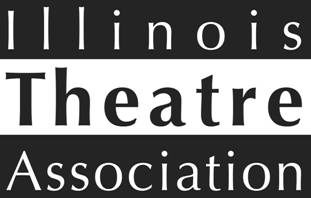
The ITA is a network of dedicated theatre artists and educators
advocating quality theatre throughout Illinois. Please join us!
113 Fairfield Way,
Studio 108
Bloomingdale, IL 60108
312-265-5922 (office)
|
|
Please Visit ITA's Corporate Sponsors:
Elmhurst College
Stagedoor Manor
Associate Corporate Sponsors:
|
| 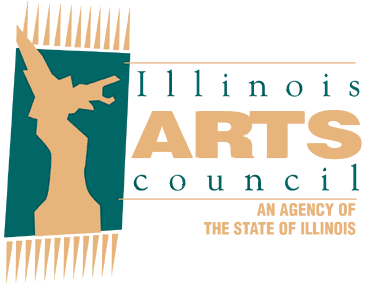
The Illinois Theatre
Association is partially
supported by a grant from
the Illinois Arts Council,
a state agency.
|
|
eFOLLOWSPOT
November
, 2019
|
|
ITA UPDATES:
The Illinois Theatre Association
Presents
the
45th Annual
Illinois High School Theatre Festival
January 9-11, 2020 at Illinois State University
___________
Looking for
Marketing, Advertising,
and Sponsorship Opportunities
|
A CHAT WITH VICTOR PILOLLA, EXECUTIVE DIRECTOR FOR
IHSTF - 2020
By Carmel DeStefano, ITA President Elect
After a lengthly phone interview with the Executive Director of the 45th Illinois High School Theatre Festival - 2020, it was obvious that the inspiration Victor Pilolla received at Oak Park River Forest High School as a teen from theatre teachers Mike Neilsen and Jim Ertrheim still guides him today. He loves working with the students and instilling the passion he still has for theatre.
Although at times it is frustrating work (more with dealing with
|
|
 |
| Victor Pilolla |
 |
adults than students), Vic is most proud when an audience or school board member comes up after a performance and congratulates him on a beautiful set. He is quick to let the praise go to the students by explaining that the work was completed 100% by the students!
A wonderful example of Vic's work inspiring not only the crew but the cast as well was this year's production of
The Diary of Anne Frank at Leyden HS. The set (built completely by the students) was three
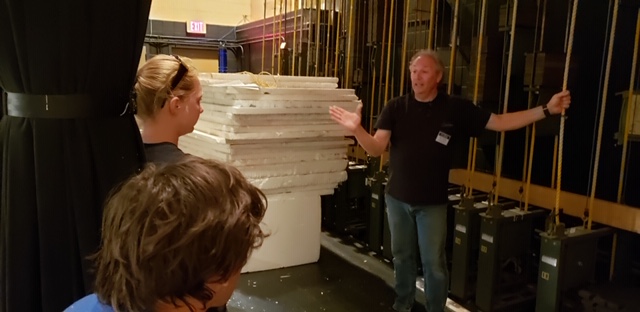 stories with Frank's hiding place on the second floor. The realism of the cramped space with the eight foot drop at the front of the set, helped to create a sense of dangerous isolation for the actors. Vic was thrill when the director asked him to block the final scene. Upon hearing the show's final line, he knew he had chosen the perfect theme for IHSTF - 2020.
The journey to becoming Executive Director started when Vic was asked to be part of the technical staff for the All-State production of
Hairspray! It was such a wonderful experience that Festival Executive Director, Patt Cheney, suggested he join the Planning Committee, and he did. Over the years, he has worked on many subcommittees including Auditions and Exhibits.
As Executive Director of this year's Theatre Fest. Victor looks at the political and social divisions of our time and hopes that the theme "I Still Believe ..." will inspire people to look for the good in people. " If I can inspire one kid to believe that any person
can change the world for the better, the Festival will be a success."
The greatest challenge for Vic as Executive Director is realizing that the High School Festival is only one event sponsored by the ITA. With all the different divisions and legalities to consider, "change" comes about rather slowly. But when a "change" finally happens like the establishment of a Production Liaison for the All-State, it is most rewarding.
Anoth
er goal for this year,
is to involve more professionals from all aspects
o
f theatre, not just from high school. This would allow more participants by establishing a larger number of workshops to introduce students to new innovations and techniques in performance and tech.
Vic knows that when he walks across the stage during Opening Ceremonies and feels the passion and enthusiasm of thousands of high school theatre students, he will be transported back to his own youth and the love of theatre instilled in him then. He also hopes that each participant will be inspired to try and do something good for another and make our world a little bit better.
Just as Anne Frank, Vic "Still Believes ..."
|
CREATING NON-FICTION THEATRE FROM INTERVIEWS WITH STUDENTS
By Elizabeth Westphal,
ITA Creative Dramatics Representative
I had the pleasure of taking a workshop this summer in New York City with
Amanda Gronich,
who helped to write The Laramie Project. The workshop focused on creating non-fiction theatre from interviews. She talked a lot about the kinds of question you s
 |
|
 |
Amanda Gronich |
hould ask. She said theatre artists should ask questions like "Who are you...?" to set up the context of the storytelling, the source and the stakes of the drama and the orientation of the individual or community. Also questions like " What do people do people get wrong.....?" help bring surprise and a way to tell the story in a new way.
Amanda says that the challenge of creating drama from non-fiction is taking the un-playable and making it playable. She refers
 to this as taking it "beyond the music stand" (were people stand and read the interviews). To make it into a play you have to think about what is new and why is this relevant now. We did an exercise where we went around the circle and gave our opinion about global warming. She called this the onion round. This tends to produce factual, general or policy responses. We did a second round where she asked what is our worst nightmare of what will happen because of global warming. Suddenly the answers were specific, visual, personal, descriptive, and stage worthy. Her point is that to get good material you have to ask good questions. She talked about creating tent-pole questions that will hold up the narrative. She gave four examples of tent-pole questions: The hypothetical que
 stion (Suppose I've never...?), playing the devils advocate (Some people would say...), the ideal position (What do you think the best way to...), and interpretive questions . These questions can provide the people planning to devise theatre with that "Ah ha" moment or moments of empathy.
Once you have asked the tent pole question you should probe for what Amanda calls the "Deep Ask". These kinds of questions explore " I fear", "I fight", " I wish", I hide", "I hope". Once you have the raw material you have to frame it into a finished piece. The performers should use the interviews and gather other sources such as the media, research and expert opinion. The performers should explore how the material connects, contradicts, creates conflict, defines character, makes dramatic events and builds the arc of the story. She suggests story tropes as a way to manage the devising process. The major tropes include journey and return, quests, western ( which is really about the stranger coming to town), overcoming the monster, rags to riches, and rebirth. Theatre from interviews is also known as Ethnodrama. For anyone interested in learning more about this process, one of the best known books about it is Ethnodrama by Johnny Saldana.
|
THE MOST WONDERFUL TIME OF THE YEAR
By Stacy Deemar, ITA Member
The most wonderful time of the year is quickly approaching. There are many parties, celebrations, gifts, and camaraderie with friends and family. Having time off from t
 he hustle and bustle of daily life is welcomed. The end of the year for SAG-AFTRA actors brings the greatest gift of all, a plethora of films and television shows to view in preparation for the Screen Actors Guild Awards.
The Screen Actors Guild Awards honor Screen Actors Guild-American Federation of Television and Radio Artists (SAG-AFTRA) in outstanding film and television productions. The fifteen awards categories include: outstanding performance by a male and female actor in a leading role and supporting role, outstanding performance by a cast in a motion picture, outstanding performance by a male and female actor in a television movie or limited series, drama
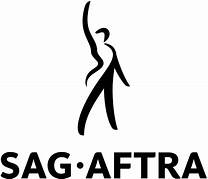 series and comedy series, outstanding performance by an ensemble in a drama and comedy series, and outstanding action performance by a stunt ensemble in a motion picture and in a comedy or drama series.
Voting for the Screen Actors Guild Awards is done in two stages. In the first stage, the Theatrical Motion Picture Committee and the Television Nominating Committee each randomly select 2500 active members to serve on their committee. These committees form in April, approximately 9 months prior to the awards ceremony. Members who serve on a committee are not eligible to serve on their respected committee again for eight years in order to allow other members to have the opportunity to serve.
Members working on the film or television nominating committee have access to 160 screenings. They receive 100 DVDs and streaming options in addition to attending question and answer discussions following the films. The film committee receives between 40-60 DVDs and the television committee receives approximately 25-35 mailings that frequently includes multiple shows. All eligible content must run within the 2019 calen
dar year.
The preliminary nomination period for the film and television nominating committee members begins in May. Nominating ballots open on November 14, 2019 and close December 8, 2019. These members can cast their votes on-line or with paper ballots.
The second stage of voting will begin on December 11, 2019, when SA
G announces
 the nominees for each of the fifteen awards categories. All active SAG members receive voting information
the nominees for each of the fifteen awards categories. All active SAG members receive voting information
and "For Your Consideration" materials to review and vote for recipients. The studios that produce the televisi
on and films shows distribute the "For Your Consideration" resources that include DVDs, digital screeners, digital film downloads, streaming, movie cash, and pass through programs. All content mailed to members must be mailed through the SAG Union Mailing House and any advertising directed to members must be approved by the Awards Office.
Of the 160,000 SAG-AFTRA members, approximately 121,000 members vote for the SAG Awards. Final voting will open on December 17, 2019 and close January 17, 2020. Dues must be paid by December 2, 2019 in order to be eligible to vote. Members can cast their votes on-line or with paper ballots.
The 26th Annual Screen Actors Guild Awards will be simulcast live on TNT and TBS on Sunday, January 19, 2020, at 7 p.m. central time. All motion pictures, television, cable, and new media programs are awarded live while the two stunt ensemble honorees are announced prior to the telecast.
If you are not a member of SAG-AFTRA, but you have a friend or family member that is a proud member, your SAG-AFTRA affiliate is allowed to watch her films with you. BUT members are pro
 hibited from loaning, renting, selling, or distributing the DVD's or streaming information. When the awards season is over, the studios require SAG members to destroy their screeners.
Enjoy the most wonderful time of the year! May you be blessed with peace, love, good health, and happiness.
|
REGINA VICTOR:
CRITIQUING WITH LOVE
American Theatre, October 22, 2019
By Diep Tran
Intro by Gaby Labotka,
ITA Profesional Theatre Representative
Theatre is an art that if it doesn't change, it dies. The way we
change and grow comes
from reflection and critique among the theatre-making community. Regina Victor is a professional theatre artist (Associate Producer
Court Theatre, freelance director and dramaturg) and critic (Fo
under and Editor-in-Chief of Rescripted). They lead from a place of empathy
both in their cri
ticism and art, and as a result they are shepherding responsible cultural shifts
in the ways we witness, analyze, respond to, and create theatre.
Article excerpt:
Armed with the idea that truth-telling and empathy don't have to be mutually exclusive, they founded Rescripted, an independent Chicago theatre publication.
Chicago-based artist Regina Victor is busy: An associate producer at the Court Theatre,

they've assistant-directed around Chicago (their next gig is Graveyard Shift at the Goodman Theatre), and they're a teaching artist at the Lyric Opera of Chicago (where they're currently "doing a devised opera with 30 Black teens"). And they're the founder and editor-in-chief of Rescripted
, an independent online publication that covers theatre in Chicago. "It's a lot of things at once," they admit.
But Victor isn't the type to go small. Take Rescripted, which they co-founded in 2017 in response to the lack of racial diversity and, as they saw it, "empathy" in Chicago criticism. In just two years, Rescripted has become a go-to hub for Chicago artists to read reviews, op-eds, and coverage of local theatre controversies
(all the more essential since publications like Time Out Chicago have eliminated theatre coverage). It's a part-time gig for Victor, but they devote full-time hours to it. In addition to editing and writing, Victor runs
the Key
, Rescripted's training program for young and new arts journalists (a talent pool that American Theatre has occasionally tapped)
. Rescripted now has 11 writers, as Victor counts them "three white, eight POC of all perspectives, four genderqueer, and seven cis." Six are Key-trained.
I recently spoke to Victor about why they founded Rescripted, why being an artist makes them a better critic, and what they mean by "empathetic" criticism.
|
HERE'S HOW 2 SCHOOLS HAVE MADE FREE COLLEGE WORK - FOR DECADES
NPR.org
Introduction by
Steve House,
ITA College/University Rep.
As Public Higher Education in Illinois still recovers from two years without budgets, this artic
|
|
 |
|
Berea College in central Kentucky
|
 |
le presents some alternative ways of using and prioritizing money. While these systems may not work for any of our currently schools they can give insight on how can we structure our budgets in the future. As participants in faculty governance we certainly have a say in how we want out Endowments and Debt is treated by our schools as we look for a more stable financial future
Also please make sure to join the Illinois Theatre Association's College/University Group by
clicking here for performance dates,
community, and information both serious and comedic about our area.
Article excerpt:
Two colleges in Kentucky offer something that most university administrators can only dream of. Berea College and Alice Lloyd College charge students nothing for tuition.
While each developed unique business models that don't transfer easily to other schools, they do have some tips to help reduce the price of college tuition. More precisely - two tips and one caution.
Free college since 1892.
Click here to link to the article,
click here.
|
ILLINOIS HIGH SCHOOL TALENT, STRUT YOUR STUFF
By Carmel DeStefano, ITA President Elect
Except from school theatre.org:
Broadway has the Tonys, Hollywood has the Oscars... now Thespians have the
Thespys!
T
he International Thespian Excellence Awards, or ThespysTM for short, recognize the highest level of achievement in school theatre performance and technical theatre.
This educational program (formerly called NIEs) gives Thespians the opportunity to receive constructive feedback on prepared theatrical material and technical designs. Students who achieve overall Superiors at their chapter and earn the top scores in their category at the International Thespian Festival w
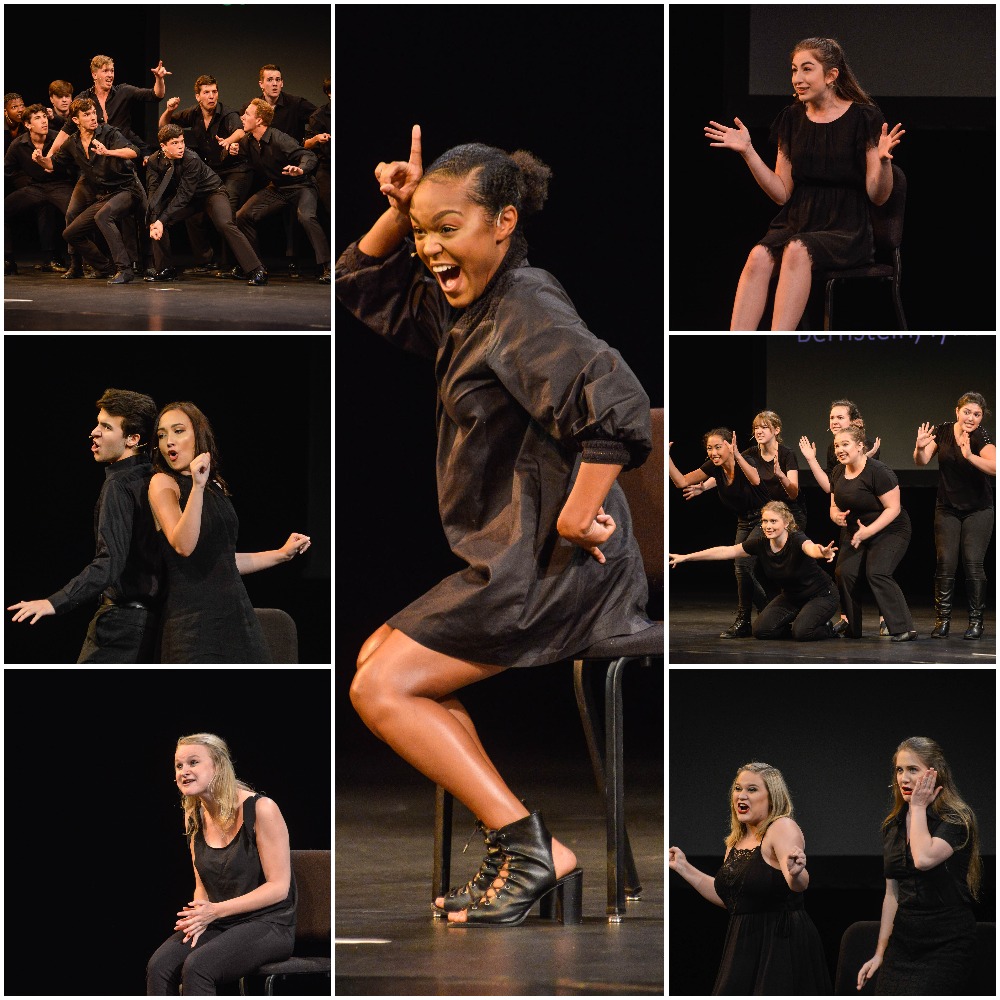 ill earn International Thespian Excellence Awards.
All Thespy Award Winners are honored on the main stage at the International Thespian Festival Showcase, the celebratory closing event. Select award winners will be invited to travel to New York City and Los Angeles to perform or present at the Educational Theatre Foundation's Broadway Back to School and Thespians Go Hollywood galas-offering the opportunity to meet and learn from industry professionals.
Want to earn a Thespy?
Well, your students now have the
opportunity to let their performance or tech talent shine!
Illinois Chapter Thespy adjudication will be held during the Illinois High School Theatre Festival-2020 this January!
Interested? Click here
to register on the Illinois Thespian website.
Don't delay, registration closes after December 15th!
|
TEACHING THEATRE: "IS ANYBODY
OUT THERE?!"
By Christopher Peterson
Onstage Blog, School Edition, May 10, 2019.
Introduction by Patrick Spreadbury,
ITA Secondary Education Representative
Teaching heatre is difficult. Teaching in an environment where you are your own department, or don't quite 'fit in' is sometimes part of the theatre teacher's reality. In this article, Christopher Peterson asks the question, "Is Anybody Out There?!"
Article excerpt:
Teaching theatre can be lonely.
Wait. What?! How can teaching be lonely? You're literally
surrounded by people all...day...long.
Yes. True. Surrounded by people. People in your classroom who hopefully love theatre and love you. Surrounded by your students. Hopefully surrounded by supportive teaching, admin, and school staff. Maybe supportive parents and guardians too.
 |
|
 |
Archer Auditorium, Ashland, Ohio |
But, teaching theatre is lonely.
Why, you ask?
Teaching theatre can be lonely because oftentimes you are the only you around. One theatre teacher per school. Usually at the high school. Sometimes the only one in an entire school district (this is me).
Back to Top
|
|
|